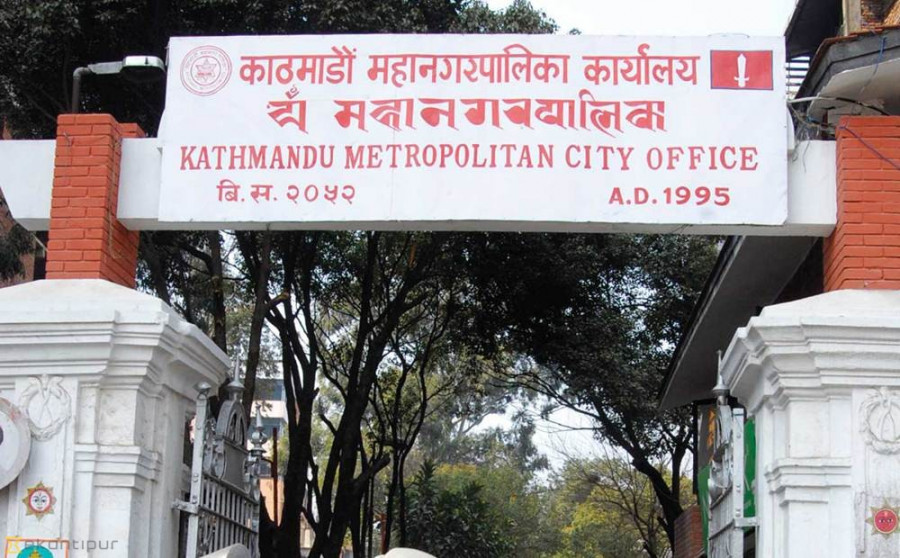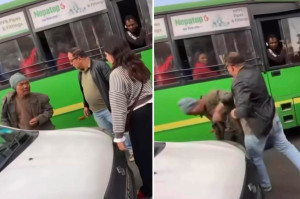Kathmandu
Kathmandu Metropolitan City lacks seriousness in containing virus spread, Health Ministry officials say
In response, City authorities are demanding free testing by the federal government although other municipalities in Valley have been doing it with their own resources.
Arjun Poudel
Agencies under the Ministry of Health and Population always have the same complaint against the Kathmandu Metropolitan City: it is not supportive of their health programmes.
Neither its political leadership, nor the bureaucracy takes the issue of healthcare seriously, as the result of which the status of its healthcare services is among the poorest and comparable to any of the remotest local levels in the country, officials said.
In the case of the fight against the spread of the Covid-19 pandemic it is no different.
“As it is densely populated, both risks and active cases of coronavirus are high in the Kathmandu Metropolitan City," Mahendra Prasad Shrestha, chief specialist at the Health Ministry, told the Post. “Despite having huge resources, the City is not taking the issue of coronavirus seriously.”
Coverage of national health care programmes—immunisation, mass drug administration campaign against elephantiasis, tuberculosis, antenatal and postnatal visits, nutrition, sanitation and hygiene and others— are low in the Kathmandu Metropolitan City compared to other local levels across the country, government data shows.
Cases of coronavirus infection are also the highest in Kathmandu Metropolitan City. Of the 197,024 cases confirmed throughout the country so far, 73,200 are from Kathmandu district alone. According to the Health Ministry, there are still over 15,000 active cases in Kathmandu district. Among them over 60 percent are in the City, according to Shrestha.
Officials at the ministry have already held several rounds of meetings with Kathmandu Metropolitan City officials and its executive council members and drawn their attention about the importance of contact tracing.
While the City officials do not deny the risks and the importance of contact tracing, which is the only way to curb the ongoing spread of the coronavirus infection, they also show no urgency whatsoever to resume contact tracing, according to Health Ministry officials.
“Other municipalities of Kathmandu Valley are serious towards the rise in the new cases and committed to resume contact tracing,” Shrestha said.
With the government decision to stop providing free tests and treatment for Covid-19 on October 5, the metropolitan city stopped contact tracing, which is instrumental in containing the spread of the coronavirus, according to public health experts.
The Kathmandu Metropolitan City has also ignored the direction of the federal government to set up quarantine facilities and isolation centres for the infected people and for those who came in close contact with them. Most local levels across the country have such facilities.
However, the city officials, who had recently tried to obstruct distribution of free meals to the poor at Khula Manch, have their own retort.
“The Health Ministry should also declare publicly that it will test the samples collected through contact tracing without any charge,” Hari Kunwar, chief of the Health Division at Kathmandu Metropolitan City, told the Post. “We cannot pay for tests of all the samples collected through contact tracing.”
Currently, people, who can afford to pay have been undergoing the polymerase chain reaction tests at private and state run laboratories.
As the active cases are huge in Kathmandu Metropolitan City, people who come in close contact with the infected are similarly huge.
Kunwar suspects people from other areas will also come to Kathmandu Metropolitan City for free testing if the City decides to pay for the tests.
Health Ministry officials have said that the government will perform free tests of those identified through contact tracing.
“Some local levels like Dakshinkali Municipality, Chandragiri Municipality and Kirtipur Municipality have started providing free tests on their own, others are also working to start contact tracing and paying for tests,” Health Ministry’s chief specialist Shrestha, claimed. “The government will henceforth also conduct tests of those who are identified through contact tracing.”
The Kathmandu Metropolitan City, however, said that the ministry should publicly declare such a thing, instead of accusing local levels.
“Like it declared publicly it would stop providing free tests and treatment, the Health Ministry should publicly declare that tests will be free and direct its laboratories to perform tests of samples collected through contact tracing,” Kunwar said. “We are ready to collect the samples.”
Meanwhile, a high level team formed by the Health Ministry for contact tracing said it has held meetings with executive committee of several municipalities in Kathmandu district, including Kathmandu Metropolitan City, Kirtipur Municipality, Budhanilkantha Municipality, Tokha Municipality, Gokarna Municipality, Dakshinkali Municipality, Chandragiri Municipality, Changunarayan Municipality and Tarakeswar Municipality.
The team has planned to complete meetings with the remaining local levels of Kathmandu Valley within a week to ask them to resume contact tracing.
Apart from holding meetings with the executive committee of the respective local levels, the Health Ministry’s team will also help form a surveillance group in every locality, which will monitor 50 households. Members of the surveillance group, which consists of social workers, female community health volunteers, civil society members and local youths, will monitor whether or not the infected people stay in home isolation, whether or not the people who came in close contact with the infected are staying in isolation and coordinate with hospitals if the infected patients become serious.




 18.12°C Kathmandu
18.12°C Kathmandu











